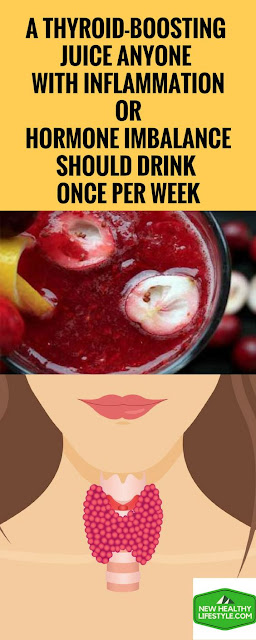A butterfly-shaped organ located at the base of the neck, the thyroid gland is responsible for producing and releasing hormones.
 |
| Credit:newhealthylifestyle.info |
Which regulate metabolism as well as other body functions, including body weight, body temperature, skin integrity, heart rate, cholesterol level, breathing, muscle strength, menstrual cycle, and central and peripheral nervous system.
How the Thyroid Gland Works
How the Thyroid Gland Works
The thyroid is part of the endocrine system, a collection of glands that produce, store and release hormones that regulate metabolism, growth and development, tissue function, sexual function, reproduction, sleep, and mood.
The hypothalamus is responsible for the production of TSH, a hormone which signals the pituitary to tell the thyroid to produce less or more of T3 and T4. This means that it promotes balance between T3 and T4.
The hypothalamus is responsible for the production of TSH, a hormone which signals the pituitary to tell the thyroid to produce less or more of T3 and T4. This means that it promotes balance between T3 and T4.
So, if T3 and T4 levels are low in the blood, the pituitary gland will produce more THS so it can stimulate the production of more thyroid hormones.
In other case, if these levels are high, the pituitary gland will release less THS to the thyroid, thus slowing down the production of thyroid hormones
In other case, if these levels are high, the pituitary gland will release less THS to the thyroid, thus slowing down the production of thyroid hormones
Hypothyroidism is known as the most common thyroid condition, which occurs from too little T3 and T4 in the body.
The most common symptoms of Hypothyroidism include:
- Joint pain
- Depression
- Frequent, heavy periods
- Anxiety
- Dry skin and hair
- Tiredness and fatigue
- Sensitivity to cold temperature
- Trouble sleeping
Hyperthyroidism is another dangerous condition which usually occurs as a result from an overactive thyroid. Some of the most common symptoms include:
- Hair loss
- Missed or light menstrual periods
- Hand trembling
- Nervousness, hyperactivity
- Sweating or sensitivity to high temperatures
- Irritability or moodiness
0 comments so far,add yours